Ski resorts are big travel business, and in the battle for visitors, size is everything.
Adding extra runs and lifts, or connecting into other areas of the mountain are all part of the alpine arms race to attract more punters. Marketing departments drool over the figures, casting them out like juicy lures. In the United States and Canada, resorts tend to measure their extent by area, whereas their European counterparts deal in kilometers of runs.
One independent survey, conducted by German ski resort consultant Christophe Schrahe, using GPS to calculate length based on a line down the middle of runs, questions the accuracy of some official figures.
But based on advertised data, here’s a rundown of 12 of the world’s biggest ski areas:
1. Les 3 Vallees, France
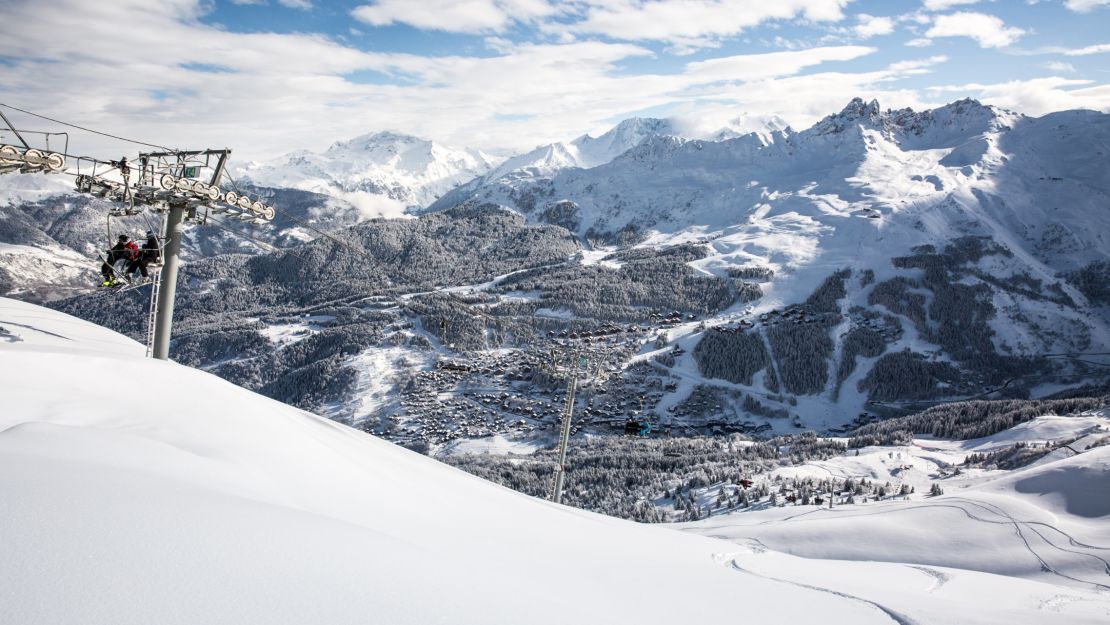
Good for: Mileage hunters, velvety slopes, guaranteed snow, gourmets, luxury, Europe’s highest resort.
The titanic 3 Vallees is the top dog, the world’s biggest ski area with 600 kilometers of runs spread between the three main resorts of Courchevel, Meribel and Val Thorens.
There’s even a fourth valley – above Orelle – leading to the region’s highest lift-accessed point at 3,230 meters below the summit of Pointe du Bouchet.
The area covers 105 square kilometers – that’s as big as Paris, France – with 328 runs, 166 high-performance lifts and 2,200 snowmaking machines covering 49% of the pistes.
Each resort has its own character: there’s uber-upmarket Courchevel 1850, plus the down-to-earth satellites of Moriond (formerly 1650), Village (ex-1550) and Le Praz (1300); attractive Meribel, wooded and chalet style, with Mont Vallon at its head; and lofty Val Thorens, at 2,300 meters the highest resort in Europe, purpose-built in a treeless amphitheater but snowsure and extensive.
Les Menuires, St Martin de Belleville and La Tania make up the area’s other main resorts.
Did you know? The 3 Vallees has 19 Michelin stars across 11 restaurants, including the three-starred La Bouitte run by father and son Rene and Maxime Meilleur in St Martin de Belleville (Saint Marcel, 73440 Saint-Martin-de-Belleville, France; +33 4 79 08 96 77) and Yannick Alléno’s Le 1947 in the five-star Cheval Blanc hotel in Courchevel 1850. (Au Jardin Alpin, 73120 Courchevel 1850, France: +33 4 79 00 50 50)
2. Portes du Soleil, France
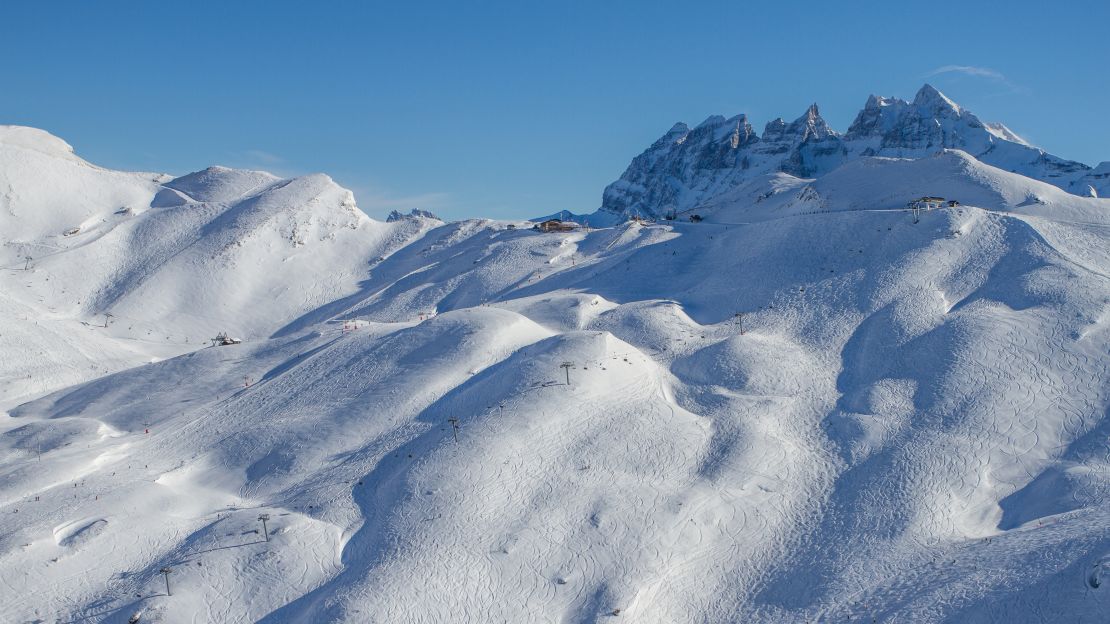
Good for: Ski safari, international travel, a variety of resorts, snowboard friendly.
The Portes du Soleil is a vast region spanning 12 resorts between Mont Blanc in France and Lake Geneva in Switzerland, although several gaps in the lift system means it trails the 3 Vallees in size despite the advertised 650 kilometers of pistes.
Modern, snow-sure Avoriaz, market town Morzine, family-favorite Les Gets and traditional Chatel are the big-name French resorts, while Champery stands out on the Swiss side.
On any visitors’ tick list will be a circumnavigation of the area, traveling off the beaten track and relying on the chatter of lift attendants to remind you what country you’re in.
Highlights include the infamous “Swiss wall,” a bumped-up beast otherwise known as the Chavanette piste above Les Crosets in Switzerland.
Did you know? When the project was initially unveiled in 1964 the area was set to be called the “Haute Route des Familles,” but Jean Vuarnet, the 1960 Olympic downhill champion and Morzine native, lobbied for alternatives. Les Portes du Soleil, named after the pass connecting Morgins to Les Crosets, was chosen instead.
3. Sella Ronda, Italy
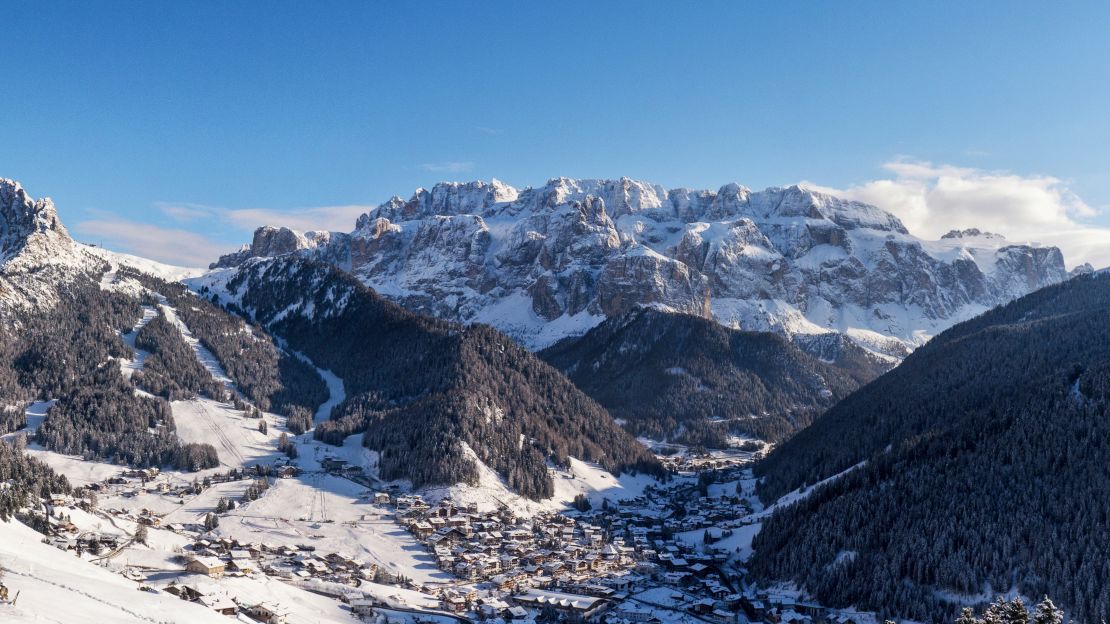
Good for: Spectacular Dolomite scenery, clear circuit, exploring valley offshoots, World War I history, food.
It doesn’t shout it from the rooftops, but the extended Sella Ronda region in Italy’s Dolomites could be right up there as one of the world’s biggest connected ski areas. The Sella Ronda is a celebrated circuit around the Sella massif, offering about 26 kilometers of skiing in either a clockwise or anti-clockwise direction.
But radiating out from the loop like spokes on a bike are several valleys in Italy with linked ski areas, such as Val Gardena, Arraba, Canazei, Ortisei and San Cassiano.
It’s all part of the vast Dolomiti Superski region, which boasts 1,200 kilometers of trails, but many of those areas are fragmented. However, several Sella Ronda resorts, including Val Gardena and Alta Badia, are now advertising their part in 500 kilometers of linked slopes.
Did you know? It is possible to do a variation of the Sella Ronda tour taking in the sites of fierce fighting during World War I, when troops from Italy faced off against Austro-Hungarian and German forces. The two armies tunneled into the mountains for protection, but many thousands were killed by avalanches set off deliberately.
4. Paradiski, France
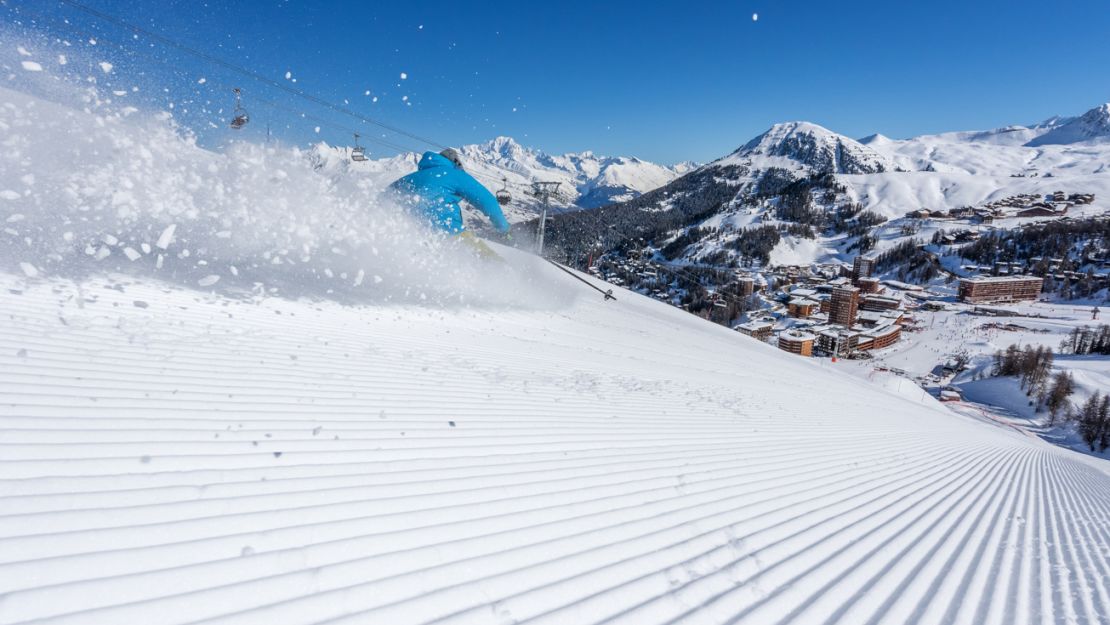
Good for: Family-friendly, beginners and intermediates, ski-in/ski-out, unheralded expert terrain.
When the double-decker Vanoise Express cable car opened in 2003 it brought together Les Arcs and La Plagne to form a massive new interlinked area called “Paradiski” above the Tarentaise valley. The tram spans a steep ravine to connect the two purpose-built resorts, taking the extent of skiable terrain up to 425 kilometers with 160 lifts.
Multilevel La Plagne is a beginner and intermediate heaven, while experts are served by some challenging terrain on the north-facing slopes of the Bellecote (3,417 meters).
Les Arcs contains various satellites named by altitude – Arc 1600, Arc 1800, Arc 2000 – with myriad runs for all levels reaching up to the Aiguille Rouge at 3,226 meters.
Did you know? The Tarentaise Tour is an all-day 70-kilometer off-piste excursion from Tignes, via the Vanoise National Park to Champagny, through La Plagne and Les Arcs before ending up in the hamlet of Villaroger.
5. 4 Vallees, Switzerland
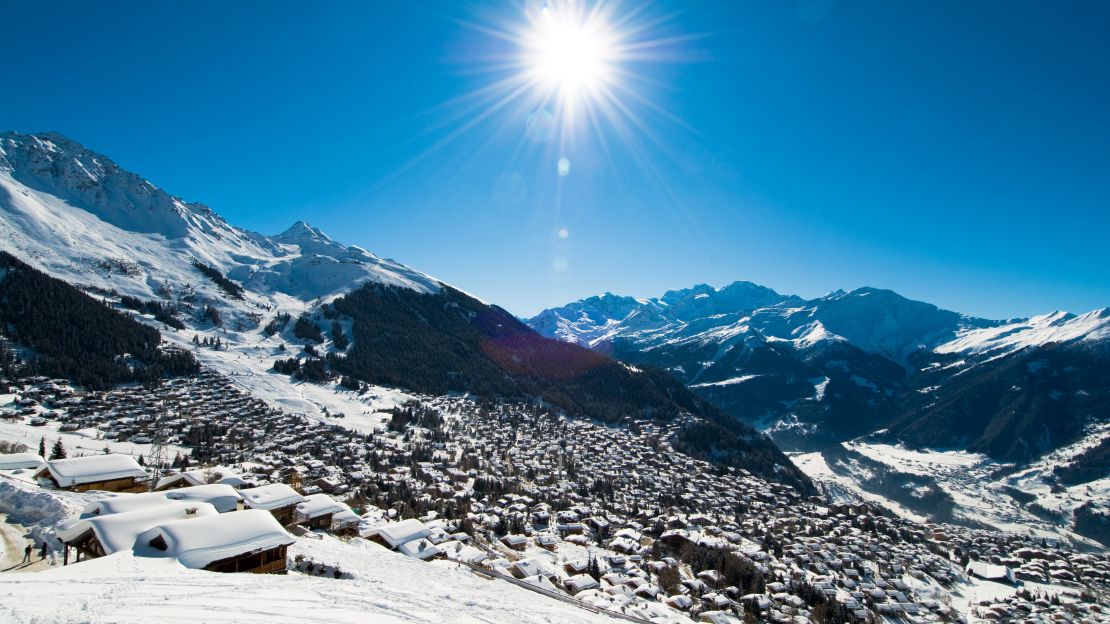
Good for: Moneybags, Verbier chic, views from Mont Fort, off-piste experts, quiet corners.
The 4 Vallees is Switzerland’s biggest linked ski area with jet-set favorite Verbier at its heart.
Stretching to 412 kilometers of linked runs, the area also encompasses the smaller resorts of Bruson opposite Verbier, and Nendaz, Veysonnaz, Thyon and La Tzoumaz overlooking the Rhone Valley.
The high point of the lift system is Mont Fort at 3,330 meters with its far-reaching views of the Matterhorn, the Grand Combin and Mont Blanc.
Verbier, which sits in a sunny bowl at 1,500 meters, is world-renowned for its chic chalets, sophisticated clientele, nightlife and extensive expert terrain.
Did you know? 4 Vallees also offers a host of winter activities. Want to take off your ski boots for a day? Try dog sledding in the Valaisan Alps with a view of the Matterhorn and the Dent Blanche.
6. Milky Way, Italy-France
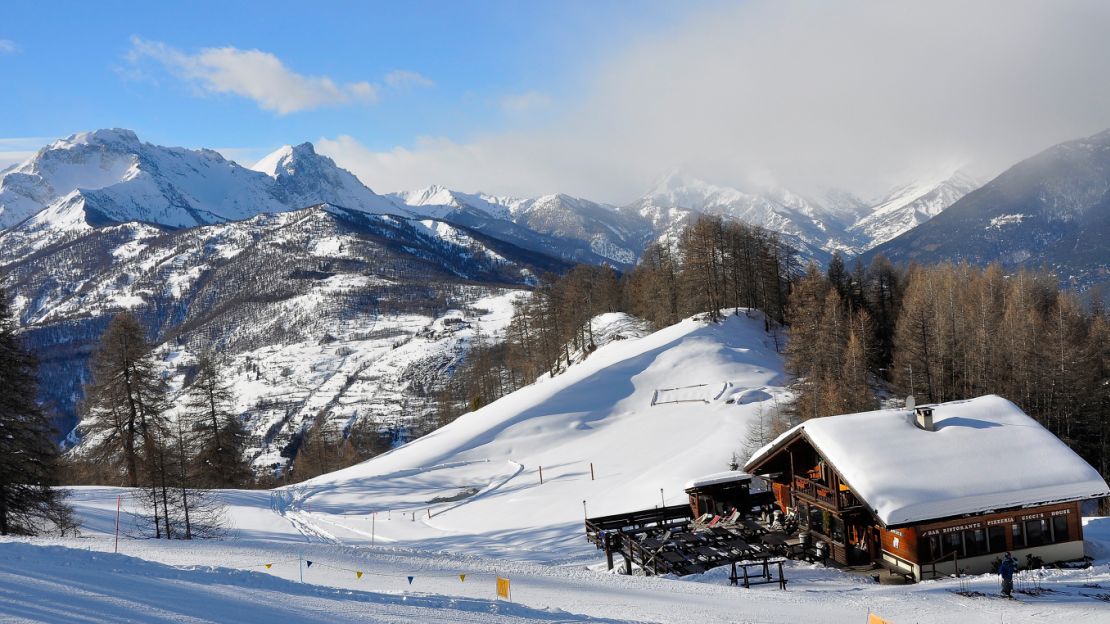
Good for: Partying in Sauze d’Oulx, chilling in Claviere, views above Sestriere, interesting runs, cross-border possibilities, varied resorts.
Named after the galaxy rather than the chocolate bar, the Milky Way (or Via Lattea) stretches across 400 kilometers of runs straddling the Italian-French border.
The string of interlinked resorts offers a range of options, from wooded, characterful Claviere to party-starting Sauze d’Oulx, with a drop into Montgenevre in France to add an international flavor.
The Turin Winter Olympics in 2006 brought the area into focus – Sestriere-Cesana-Sansicario hosted all the alpine events – and ushered in a significant lift system update.
The highest lift reaches almost to the summit of Mt. Motta at 2,823 meters with spectacular views above Sestriere, a fixture on the World Cup downhill circuit.
A celestial chart – aka ski lift map – is essential to navigate the Milky Way.
Did you know? Sestriere was purpose built for Fiat car company employees to enjoy winter sports back in the 1930s. Its two circular towers are a nod to the Fiat factory in nearby Turin.
7. Matterhorn Ski Paradise, Switzerland
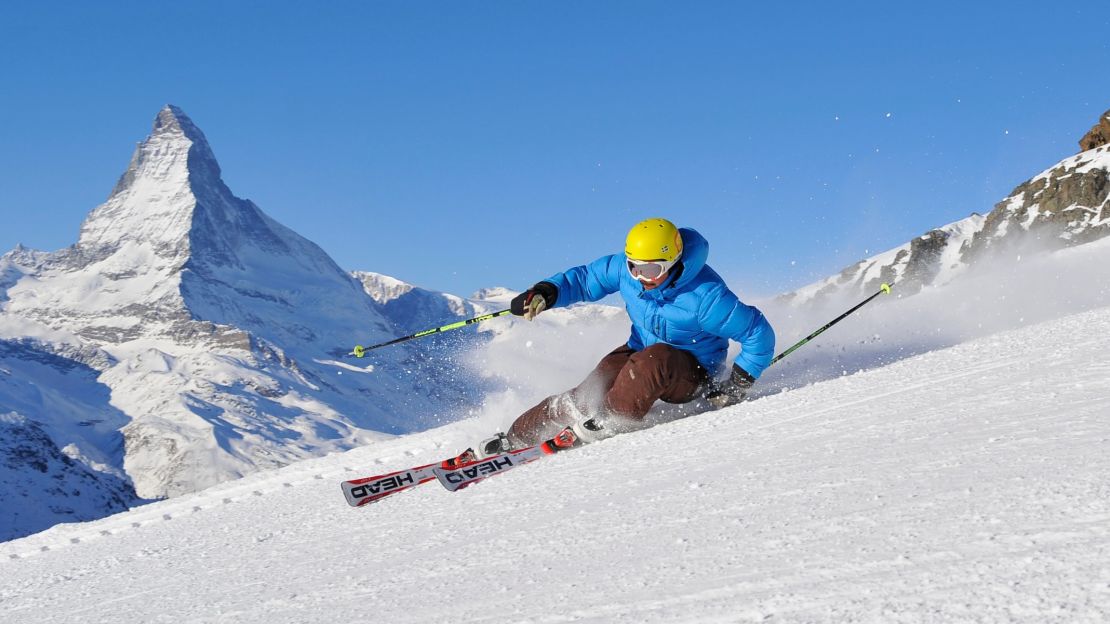
Good for: Matterhorn gazing, mountain restaurants, alpine history, snow quality, Italian-Swiss mash-up.
Draped over the slopes below the majestic Matterhorn are the linked ski areas of Zermatt in Switzerland and Cervinia/Valtournenche in Italy’s Aosta Valley.
World-renowned Zermatt, a historic center for alpinism and a gourmet’s delight with 48 mountain restaurants, has 200 kilometers of trails with skiing up to the Matterhorn glacier paradise at 3,889 meters. Combined with the 160 kilometers in Italy, it makes for a vast mountain playground surrounded by some of the Alps’ highest peaks, including Monte Rosa (4,634 meters), the Weisshorn (4,506 meters) and the Dent Blanche (4, 357 meters).
Cervinia’s open bowl offers plentiful intermediate cruising with good-value Italian eateries on the south side of Monte Cervino (Matterhorn, 4,478 meters).
Did you know? Edward Whymper and his party first climbed the Matterhorn on July 14, 1865 via the Hornli ridge above Zermatt, but four climbers fell to their deaths on the descent. Three are buried in Zermatt’s churchyard.
8. Arlberg ski area, Austria
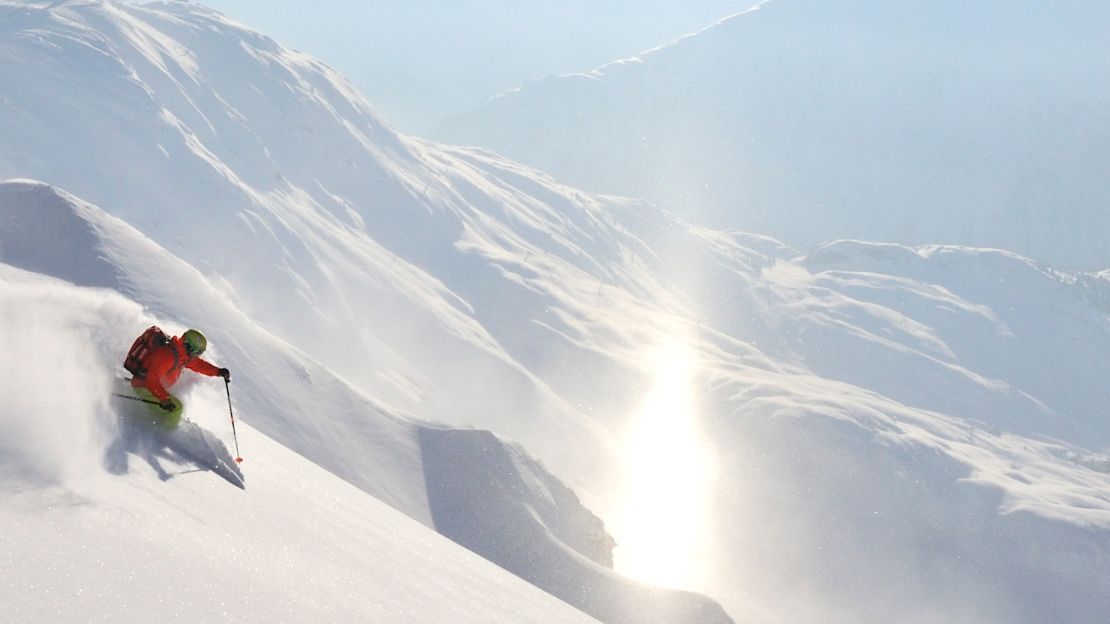
Good for: Austrian après-ski, reliable snow, off-piste adventures, royalty spotting in Lech.
The Arlberg has long been one of world skiing’s crown jewels but took on an extra shimmer in the 2016-17 season with a new lift forming the final link in the chain to make it Austria’s largest connected area. The flash Flexenbahn gondola joins Stuben with Zurs to provide 305 kilometers of linked ski runs stretching from St. Anton, through St. Christoph, Zurs, Lech and the recently linked area of Warth-Schrocken.
The White Ring ski route and recent Run of Fame circuit are good ways to see the area, from challenging skiing and hard-partying in St. Anton – with its infamous beer halls like the Mooserwirt or the Krazy Kanguruh – to refined, leisurely Lech, a haven for royalty and rock stars.
Did you know? Like all vast ski areas, keeping an eye on lift closing times is crucial – miss the Auenfeldjet back from Warth to Lech and you’re looking at about a two-and-a-half hour, 250 euro taxi ride back because the short mountain pass between the two is closed in winter.
9. Val d’Isere and Tignes, France
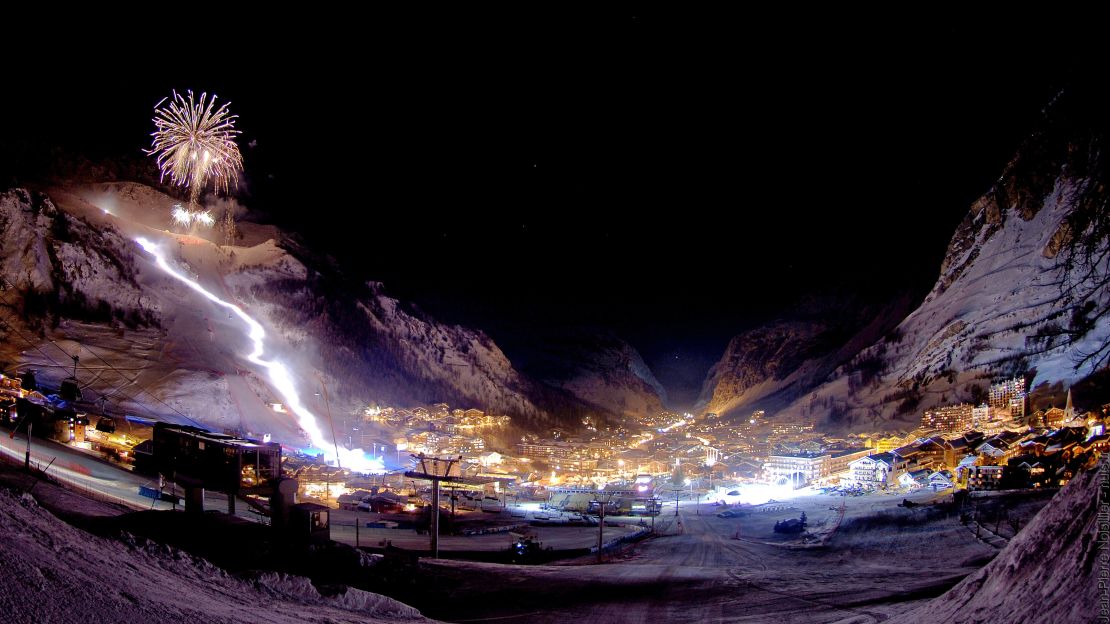
Good for: Intermediates and experts, extensive off-piste, glacier skiing, nightlife, mileage.
Breaking ranks from catchy naming conventions, Val d’Isere and Tignes have dispensed with the Espace Killy moniker for their combined ski area (named after triple Olympic champion Jean-Claude Killy), but they still offer the same celebrated 300 kilometers of runs.
Val d’Isere grew out of a small alpine farming village at the end of the Tarentaise valley into one of the world’s best known resorts, with skiing for all abilities on its Le Fornet, Pissaillas, Solaise and Bellevarde sectors, including the challenging 1992 Olympic downhill run, “La Face.”
The various hamlets that make up Tignes sit in a high treeless bowl below the Grande Motte (3,656 meters) with skiing on the glacier – reached by underground funicular railway and cable car – from 3,456 meters.
Did you know? Beneath the water of the Lac du Chevril below Tignes lie the remains of the old village, including a 17th century church, submerged when the hydroelectric dam was built in 1952.
10. Alpe d’Huez and Les Deux Alpes, France
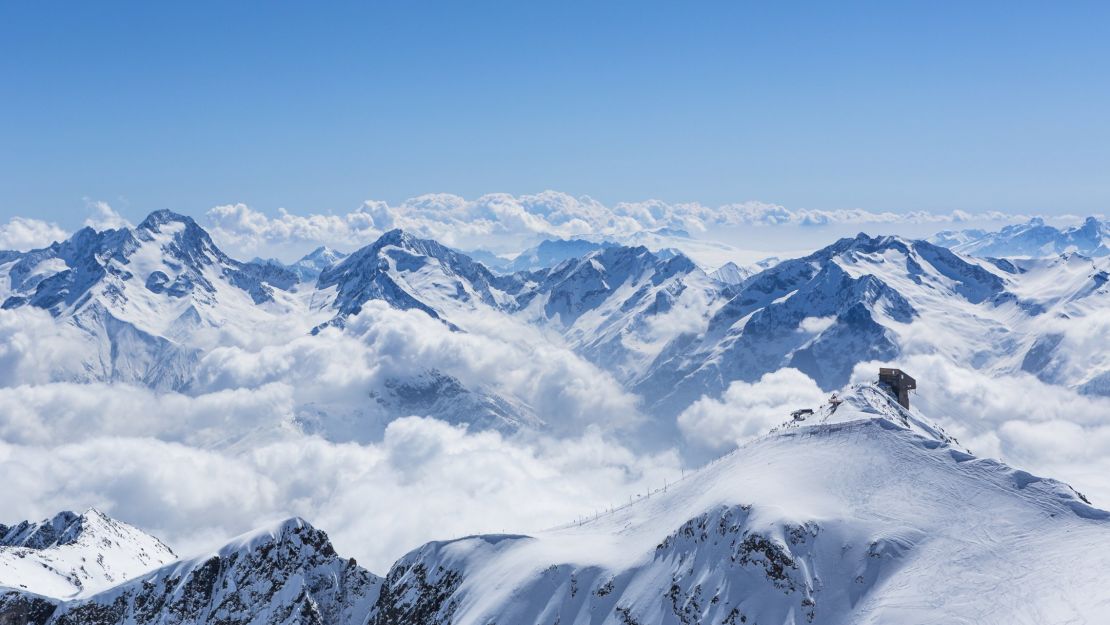
Good for: Short transfer from Grenoble, purpose-built convenience, runs for all standards, glacier skiing.
Not quite a behemoth yet, but the proposed link between Alpe d’Huez and Les Deux Alpes will create a ski area of about 475 kilometers when it’s completed by 2021.
The two resorts announced a 350 million euro investment over the next five years, which will include an 18-minute gondola spanning a deep valley between the two areas.
Purpose-built Alpe’d’Huez sits at 1,860 meters in a south-facing bowl with 250 kilometers of varied pistes, including the world’s longest black run, the 16-kilometer Sarenne descent.
Les Deux Alpes climbs a ridge radiating from La Meije (3,864 meters) with skiing on the glacier at 3,568 meters virtually all year round.
The cult off-piste pocket of La Grave, just over the ridge, could also be further integrated after a 30-year lease for its single telepherique was granted to Alpe d’Huez’s lift company.
Did you know? Alpe d’Huez is famed for its 21 switchbacks often climbed by Tour de France cyclists at the end of a grueling mountain stage.
11. Whistler Blackcomb, British Columbia, Canada
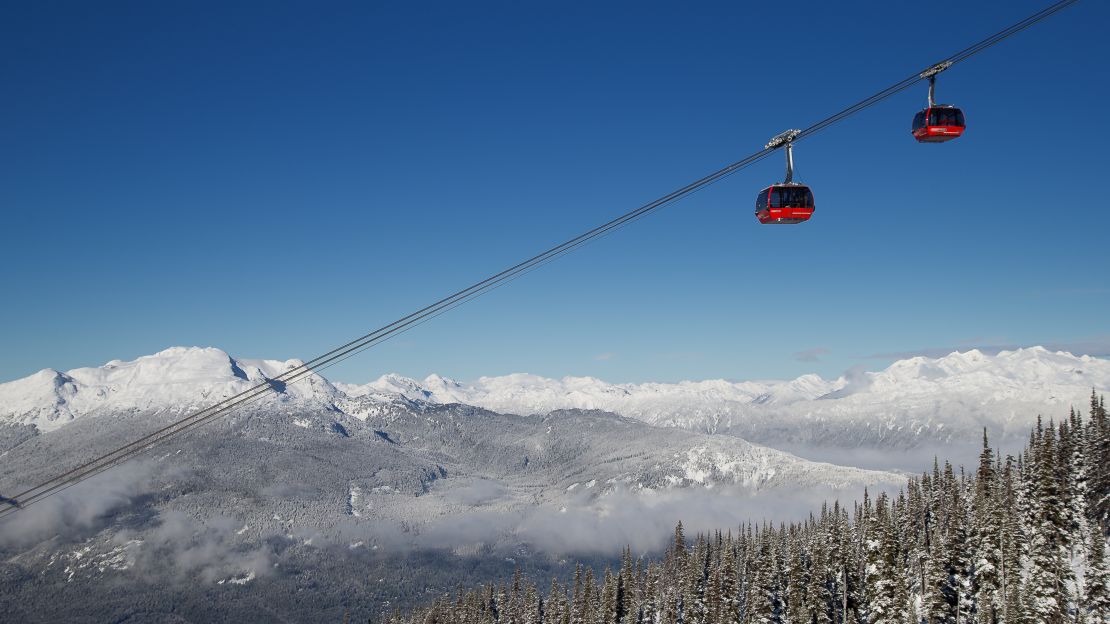
Good for: Big snowfall, Canadian efficiency, polite lifties.
The biggest ski area in North America and Canada by area, Whistler-Blackcomb north of Vancouver in British Columbia has grown to be one of the world’s most visited resorts.
It claims a skiable area of 8,171 acres with 37 lifts and more than 200 trails across a variety of glade skiing, open bowls and three glaciers, stretching from Whistler Creekside at 653 meters to 2,284 meters on Blackcomb mountain.
Schrahe has measured a skiable extent of 253 kilometers, which includes a certain amount of avalanche-controlled but ungroomed inbounds terrain, unlike European resorts, which only measure trails.
Whistler and Blackcomb ski areas merged in 1997 and were joined physically by the Peak 2 Peak gondola in 2008.
Did you know? Whistler was conceived as part of a bid to win the 1968 Winter Olympics, and though the plan failed the original resort opened in 1966. It finally held the Games in 2010.
12. Park City, Utah
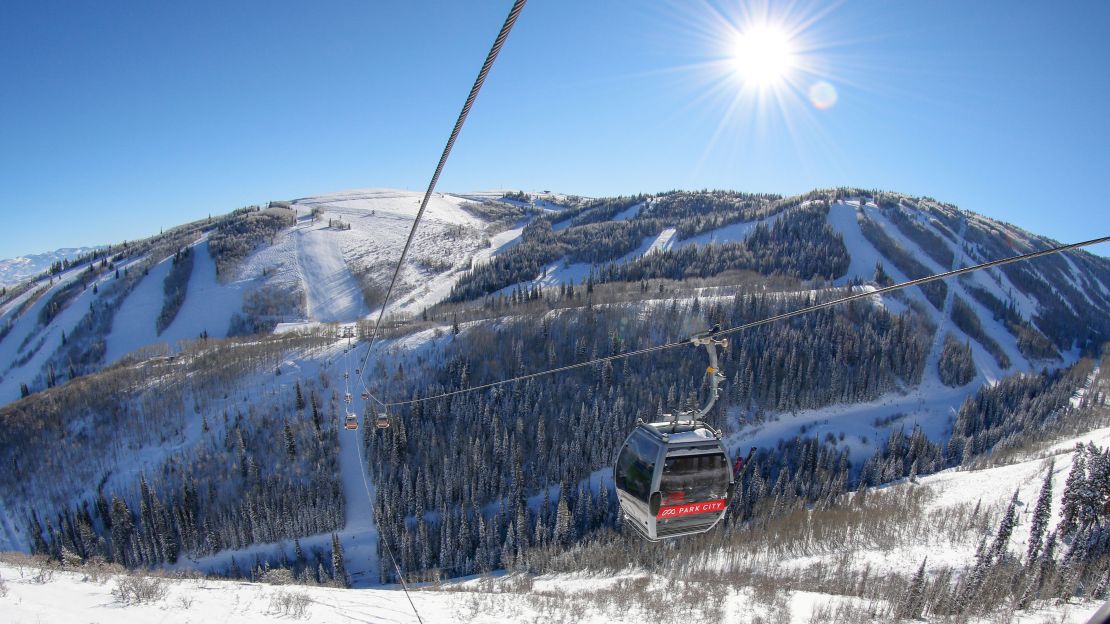
Good for: Convenience from Salt Lake City, tree-lined skiing, historic Main Street.
Utah’s Park City and Canyons Resort combined in 2015 to create the largest ski area in the United States.
The Quicksilver Gondola crossing Pinecone Ridge is the conduit between the two areas, creating a 7,300-acre playground with more than 300 trails and 41 lifts in the Wasatch mountains about 48 kilometers from downtown Salt Lake City.
Schrahe has measured the ski area at 265 kilometers of runs, with a vertical rise of 975 meters to a high point at the top of Jupiter Bowl (3,055 meters). Only 8% of terrain is rated as beginner.
Park City, which hosted events during the 2002 Winter Olympics, was founded in the 19th century silver mining boom and its Main Street retains its historic feel.
Did you know? Park City is owned by Vail Resorts, which also has Beaver Creek, Breckenridge and Stowe in its portfolio. It’s home to the United States Ski Team and hosts the Sundance Film Festival.
Rob Hodgetts is a journalist and editor who has worked for the likes of CNN Sport, BBC Sport, BBC News and Reuters and has reported from some of the world’s biggest sporting events including numerous winter and summer Olympics, golf’s US Masters and the Ryder Cup.















